第58章 THE MERRY WIDOWS(1)
Twenty years separate the cases of these two women, the length of France lies between the scenes in which they are placed: Mme Boursier, Paris, 1823; Mme Lacoste, Riguepeu, a small town in Gascony, 1844.I tie their cases together for reasons which cannot be apparent until both their stories are told--and which may not be so apparent even then.That is not to say I claim those reasons to be profound, recondite, or settled in the deeps of psychology.The matter is, I would not have you believe that I join their cases because of similarities that are superficial.My hope is that you will find, as I do, a linking which, while neither profound nor superficial, is curious at least.As I cannot see that the one case transcends the other in drama or interest, I take them chronologically, and begin with the Veuve Boursier:
At the corner of Rue de la Paix and Rue Neuve Saint-Augustine in 1823 there stood a boutique d'epiceries.It was a flourishing establishment, typical of the Paris of that time, and its proprietors were people of decent standing among their neighbours.More than the prosperous condition of their business, which was said to yield a profit of over 11,000 francs per annum, it was the happy and cheerful relationship existing between les epoux Boursier that made them of such good consideration in the district.The pair had been married for thirteen years, and their union had been blessed by five children.
Boursier, a middle-aged man of average height, but very stout of build and asthmatically short of neck, was recognized as a keen trader.He did most of his trading away from the house in the Rue de la Paix, and paid frequent visits, sometimes entire months in duration, to Le Havre and Bordeaux.It is nowhere suggested that those visits were made on any occasion other than that of business.M.Boursier spent his days away from the house, and his evenings with friends.
It does not anywhere appear that Mme Boursier objected to her husband's absenteeism.She was a capable woman, rather younger than her husband, and of somewhat better birth and education.She seems to have been content with, if she did not exclusively enjoy, having full chargeof the business in the shop.Dark, white of tooth, not particularly pretty, this woman of thirty-six was, for her size, almost as stout as her husband.It is said that her manner was a trifle imperious, but that no doubt resulted from knowledge of her own capability, proved by the successful way in which she handled her business and family responsibilities.
The household, apart from Mme and M.Boursier, and counting those employed in the epicerie, consisted of the five children, Mme Boursier's aunt (the Veuve Flamand), two porters (Delonges and Beranger), Mlle Reine (the clerk), Halbout (the book-keeper), and the cook (Josephine Blin).
On the morning of the 28th of June, which would be a Sunday, Boursier was called by the cook to take his usual dejeuner, consisting of chicken broth with rice.He did not like the taste of it, but ate it.Within a little time he was violently sick, and became so ill that he had to go to bed.The doctor, who was called almost immediately, saw no cause for alarm, but prescribed mild remedies.As the day went on, however, the sickness increased in violence.Dr Bordot became anxious when he saw the patient again in the evening.He applied leeches and mustard poultices.Those ministrations failing to alleviate the sufferings ofthe invalid, Dr Bordot brought a colleague into consultation, but neither the new-comer, Dr Partra, nor himself could be positive in diagnosis.Something gastric, it was evident.They did what they could, though working, as it were, in the dark.
The patient was no better next day.As night came on he was worse than ever.A medical student named Toupie was enlisted as nurse and watcher, and sat with the sufferer through the night--but to no purpose.At four o'clock in the morning of the Tuesday, the 30th, there came a crisis in the illness of Boursier, and he died.
The grief exhibited by Mme Boursier, so suddenly widowed, was just what might have been expected in the circumstances from a woman of her station.She had lost a good-humoured companion, the father of her five children, and the man whose genius in trading had done so much to support her own activities for their mutual profit.The Veuve Boursier grieved in adequate fashion for the loss of her husband, but, being acapable woman and responsible for the direction of affairs, did not allow her grief to overwhelm her.The dead epicier was buried without much delay--the weather was hot, and he had been of gross habit--and the business at the corner of Rue de la Paix went on as near to usual as the loss of the `outside' partner would allow.
Rumour, meantime, had got to work.There were circumstances about the sudden death of Boursier which the busybodies of the environs felt they might regard as suspicious.For some time before the death of the epicier there had been hanging about the establishment a Greek called Kostolo.He was a manservant out of employ, and not, even on the surface, quite the sort of fellow that a respectable couple like the Boursiers might be expected to accept as a family friend.But such, no less, had been the Greek's position with the household.So much so that, although Kostolo had no money and apparently no prospects, Boursier himself had asked him to be godfather to a niece.The epicier found the Greek amusing, and, on falling so suddenly ill, made no objection when Kostolo took it on himself to act as nurse, and to help in the preparing of drinks and medicines that were prescribed.